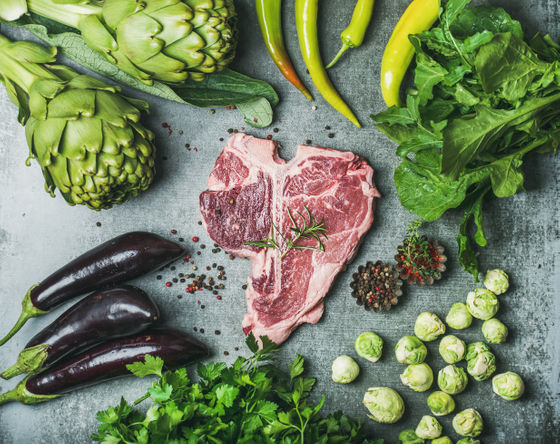Research shows that the key to successful dieting is 'protein' and 'dietary fiber'

When it comes to dieting, many people probably think of reducing their intake of sugar and fat. A new study has found that people who successfully lost weight through diet programs consumed more protein and fiber.
Successful dietary changes correlate with weight‐loss outcomes in a new dietary weight‐loss program - Lee - 2024 - Obesity Science & Practice - Wiley Online Library
Weight-loss Success Depends on Eating More Protein, Fiber while Limiting Calories, Study Finds | Carle Illinois College of Medicine | Illinois
https://medicine.illinois.edu/news/weight-loss-success-depends-on-eating-more-protein-fiber-while-limiting-calories-study-finds
The study, led by researcher Manabu T. Nakamura, a professor of nutrition at the University of Illinois at Urbana-Champaign, and his team, tracked the progress of a dieter's 'individualized dietary improvement program (iDip),' which uses data visualization tools and dietary education sessions to improve nutritional knowledge and help each participant create a weight-loss plan that's right for them.
'Flexibility and personalization are key in creating programs that maximize dieters' success in losing weight and keeping it off,' Nakamura says.
The key to iDip is to limit daily calorie intake to under 1,500 kcal while increasing protein and fiber intake. Participants started with their usual diet and were given an individualized plan to increase their protein intake to around 80g per day and fiber intake to around 20g per day.

Ultimately, 22 of the 30 participants completed the program, including 9 men and 13 women. The average age of the 22 participants was 49.6 years old, and their average BMI at the start of the study was 37.3, which is considered obese. Participants also reported having an average of three or more comorbidities, including hypercholesterolemia, hypertension, type 2 diabetes, and depression, and had tried dieting on average more than twice in the past.
Results of the 25-month program varied widely, with the most successful nine participants (41%) losing 12.9% of their body weight, while the rest of the participants only lost 2%. Participants who reported depression lost significantly less weight than those who did not.
The research team then analyzed the protein and fiber intake of people who had successfully lost a lot of weight and found a strong correlation between the intake of these two nutrients and the amount of weight loss they experienced three and 12 months after starting the diet.
According to the research team, 78% of the weight loss in people who successfully dieted was fat. In other words, there was little loss of non-fat mass, such as muscle. The research team wrote in their paper that it is highly likely that maintaining this 'lean body mass' and increasing protein intake accelerated the loss of fat mass, thereby enhancing the effectiveness of weight loss.

The research team also hypothesizes that this correlation may have been related to the dieters' early weight loss success, which may have led to motivation to continue their diet plan later on.
'The strong correlations seen in this study suggest that people who made sustainable dietary changes in the first three months continued to lose weight, whereas people who failed to make early improvements were less likely to change their eating habits over the next few months,' Nakamura said.
Related Posts:







